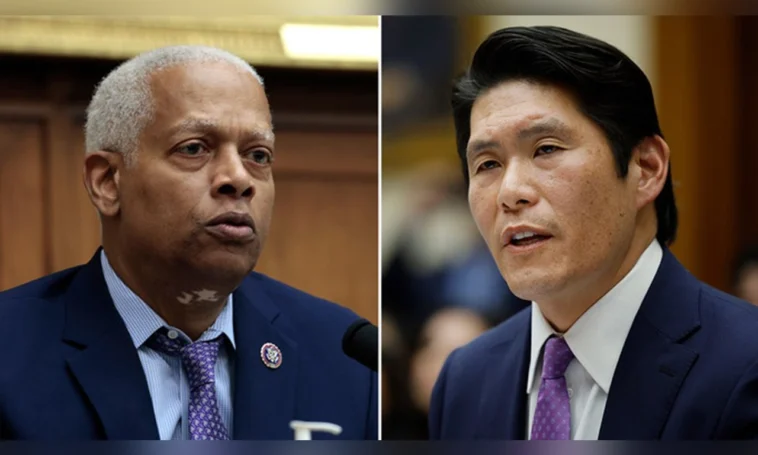Hur countered Johnson’s allegations of aiding Trump by challenging Biden’s memory.The heated exchange during Special Counsel Robert Hur’s testimony before Congress shed light on the contentious intersection of politics and investigations. As Rep. Hank Johnson, a Democrat from Georgia, levied accusations against Hur, tensions escalated, revealing underlying suspicions and political motives.
Johnson’s line of questioning seemed to imply that Hur’s investigation into President Biden’s memory lapses was politically motivated, aiming to undermine Biden’s credibility and bolster Trump’s chances in the upcoming election.
Johnson’s reference to Hur’s previous associations with the Federalist Society, a conservative and libertarian-leaning group, added fuel to the fire, suggesting a possible bias in Hur’s investigative approach.
By focusing on Hur’s career trajectory and affiliations, Johnson attempted to paint a picture of partisan allegiance, insinuating that Hur’s past connections influenced his investigative decisions. Johnson’s reference to Hur’s denial of recalling document details during a lengthy interview further fueled suspicions of ulterior motives behind the investigation’s findings.
Hur, however, vehemently refuted these allegations, emphasizing the independence and fairness of his work. His rejection of any partisan influence underscored the importance of maintaining objectivity in investigative processes, especially when scrutinizing individuals in positions of power.
“Despite clearing President Biden from being prosecuted, you used your report to trash and smear President Biden because he said in response to questions over a five-hour interview that he didn’t recall how he got the documents,” Johnson said.
The exchange between Johnson and Hur exemplifies the broader challenges facing investigations into political matters. In an increasingly polarized political landscape, allegations of bias and partisanship often overshadow the pursuit of truth and accountability. The mere perception of political influence can cast doubt on the credibility of investigative findings, undermining public trust in the integrity of the process.
Moreover, the role of congressional hearings in scrutinizing investigative efforts adds another layer of complexity to the discourse. While congressional oversight is crucial for ensuring transparency and accountability, it also provides a platform for political grandstanding and partisan theatrics. Johnson’s pointed questioning of Hur reflects the inherent tension between political objectives and the pursuit of justice within the congressional arena.
At its core, the exchange underscores the need for transparency, impartiality, and integrity in investigative processes, especially when dealing with matters of national significance. Regardless of political affiliations or allegiances, the pursuit of truth should remain paramount, free from partisan agendas or ulterior motives.
As the political landscape continues to evolve, maintaining public confidence in the integrity of investigative efforts becomes increasingly challenging. Instances of perceived bias or partisan interference only serve to erode trust in institutions and further deepen societal divisions.
Moving forward, efforts to depoliticize investigations and uphold the principles of fairness and accountability are essential for restoring public faith in the integrity of the justice system.



